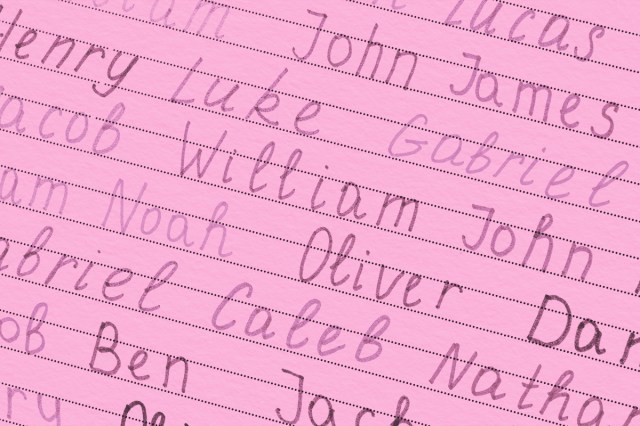
Have you ever wondered what, if anything, your name says about you? While parents usually put a great deal of thought and care into choosing names for their babies, these are typically given without any input from the recipient. Therefore, it would be logical to think that, really, our names say very little about who we are as individuals. But that isn’t necessarily the case — our names might actually have some say in how others perceive us, at least initially. But why? Here’s a look at how, when it comes to names, some sonic signatures could influence first impressions and personality associations in thought-provoking ways.
In 1929, German American psychologist Wolfgang Köhler carried out an elegantly simple experiment. He showed test subjects two shapes: one rounded and cloudlike, the other sharp and spiky. He then asked them to assign one of the made-up names “takete” or “maluma” to each shape. He found that an overwhelming majority of people matched “maluma” with the rounded shape and “takete” with the angular one. The experiment revealed a strong link between meaningless speech sounds and geometrical shapes — the softer-sounding word was associated with the rounded shape, and the harsher-sounding word with the spiky shape.
Later, in 2001, UCSD scholars V.S. Ramachandran and Edward Hubbard repeated the experiment. Using similar shapes to Köhler’s experiment, they gave people a simple task: “In Martian language, one of these two figures is a ‘bouba’ and the other is a ‘kiki,’ try to guess which is which.” A resounding 95% of people picked “bouba” for the smooth, rounded figure, and “kiki” for the spiky one. This became known as the bouba-kiki effect. The experiment was later carried out across different cultures and languages, with similar results.
So what, exactly, is going on? It isn’t entirely clear why the phenomenon occurs, but Ramachandran and Hubbard believe it may be due to connections between the sensory and motor areas of the brain. In the experiment, the visual shape of the object — round or spiky — is linked to the shape that our lips make when we say that corresponding word, with “bouba” producing open and rounded lip shapes, and “kiki” narrow and wide. In general, the experiments revealed that people — through the physical experience of both saying and hearing sounds — tend to associate sharp words to spiky objects, and softer words with rounder objects.
The bouba-kiki effect shows how nonwords such as “bouba,” “maluma,” “takete,” and “kiki” can be associated with certain shapes, but what does this mean for the most personal of words, our own names? Cognitive psychologist David Sidhu and psycholinguist Penny Pexman tackled this very question, and they found that sound symbolism is not limited to nonwords, and that the bouba-kiki effect could apply to recognizable given names as well as nonwords.
According to Sidhu and Pexman, individuals do associate certain personality traits with first names, solely on the basis of the sounds the name contains. Using shapes similar to those used by Köhler, Ramachandran, and Hubbard, their study found that certain first names, such as Bob and Molly, were perceived as round, and others, such as Kirk and Kate, as spiky. A similar study was carried out in French, with similar results: a round-sounding Benoit versus a spiky Éric.
Talking to the BBC, David Sidhu explained how the sounds of given names are perceived: “Smoother-sounding names like Molly get associated with things like being more agreeable, more emotional, more conscientious, whereas the harsher, spikier-sounding names are thought of as being more extroverted.” Names that are rich in soft, rounded sounds — for example, Bobby, Emma, or Liam — tend to be associated with warmth, approachability, and gentleness. In contrast, names featuring harder consonants and sharper sounds — Kirk, Kate, Viktor — can be perceived as energetic, projecting qualities such as strength, competence, and decisiveness.
Don’t start agonizing over your own name — or what to call your baby — just yet. Sidhu and Pexman tested whether any actual link exists between a person’s name and their personality, perhaps as a result of a round or spiky name influencing its owner. They found no such association. Their data suggests that a first name is highly unlikely to influence a person’s actual personality traits — at least not beyond any biases held by other people.
According to Sidhu, the way a name sounds can play a role when that’s all someone knows, much like in his and Pexman’s studies — and it can potentially affect people’s first impressions. “But as you start getting more information about the person,” he says, “then that actual information about the personality is probably going to override these biases.” Your name, therefore, is unlikely to shape your personality in any significant way — but the bouba-kiki effect does remind us that language and perception are deeply intertwined, and simple sounds can carry more weight than we typically recognize.

















